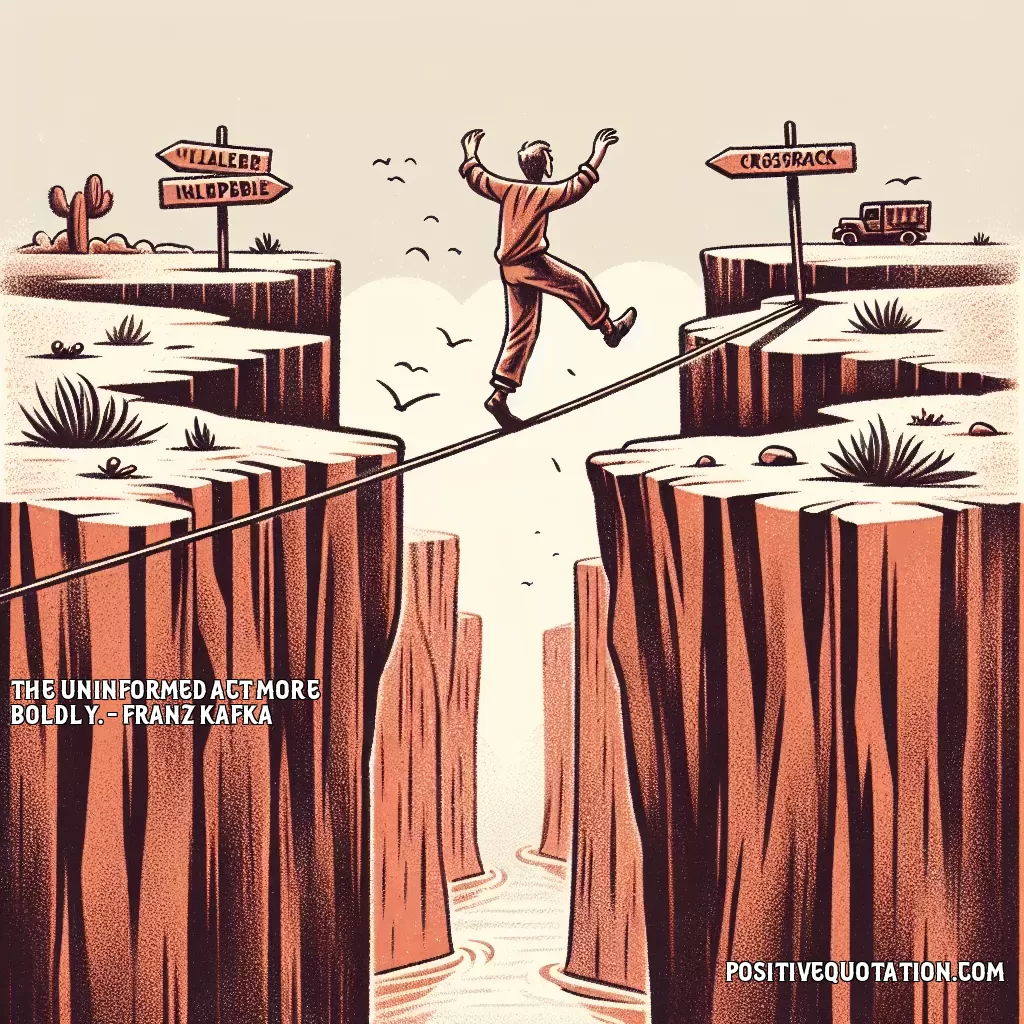
The uninformed act more boldly. - Franz Kafka
Author: Franz Kafka
👁️ 6 views
Franz Kafka's quote, "The uninformed act more boldly," is a thought-provoking statement that underscores the paradoxical nature of knowledge and action. At first glance, it seems counterintuitive that those with less information would act with more confidence than those who are well-informed. However, upon closer examination, this phenomenon makes sense within the context of human psychology and decision-making. When individuals lack information or understanding about a particular situation, they might not fully recognize the complexities, risks, or potential consequences involved. This lack of awareness can lead to a kind of naive confidence, where decisions are made swiftly and with little hesitation. Without the burden of overthinking or the paralysis that can come from contemplating various outcomes, the uninformed are free from doubt and second-guessing. As a result, their actions might appear bolder or more decisive. In contrast, those with greater knowledge are often more aware of the potential pitfalls and variables that can affect the outcome of their actions. This awareness can lead to analysis paralysis, where the fear of making a mistake or the anticipation of possible negative consequences causes hesitation and uncertainty. Essentially, increased information leads to a deeper understanding of complexities, which can result in a more cautious and less daring approach. Kafka's observation calls attention to the irony that sometimes, ignorance can fuel more confident behaviors, while knowledge can foster restraint and caution. This quote invites us to reflect on how we approach decision-making and consider the balance between being informed and being decisive. It warns of the dangers of overconfidence derived from ignorance while also highlighting the importance of courageously engaging with the world, even in the face of uncertainty.
Quote By: Franz Kafka
Franz Kafka (1883-1924) was a German-speaking Bohemian writer, renowned for his surreal and existential works that explore themes of alienation, bureaucracy, and the absurdity of life. His most famous stories, including "The Metamorphosis" and "The Trial," illustrate the struggles of individuals against incomprehensible and oppressive forces. Despite publishing only a few short stories and novels during his lifetime, Kafka's influence on 20th-century literature is profound, earning him a lasting legacy as one of the key figures of modernist literature.
Bio added on: 2025-02-24 05:27:25